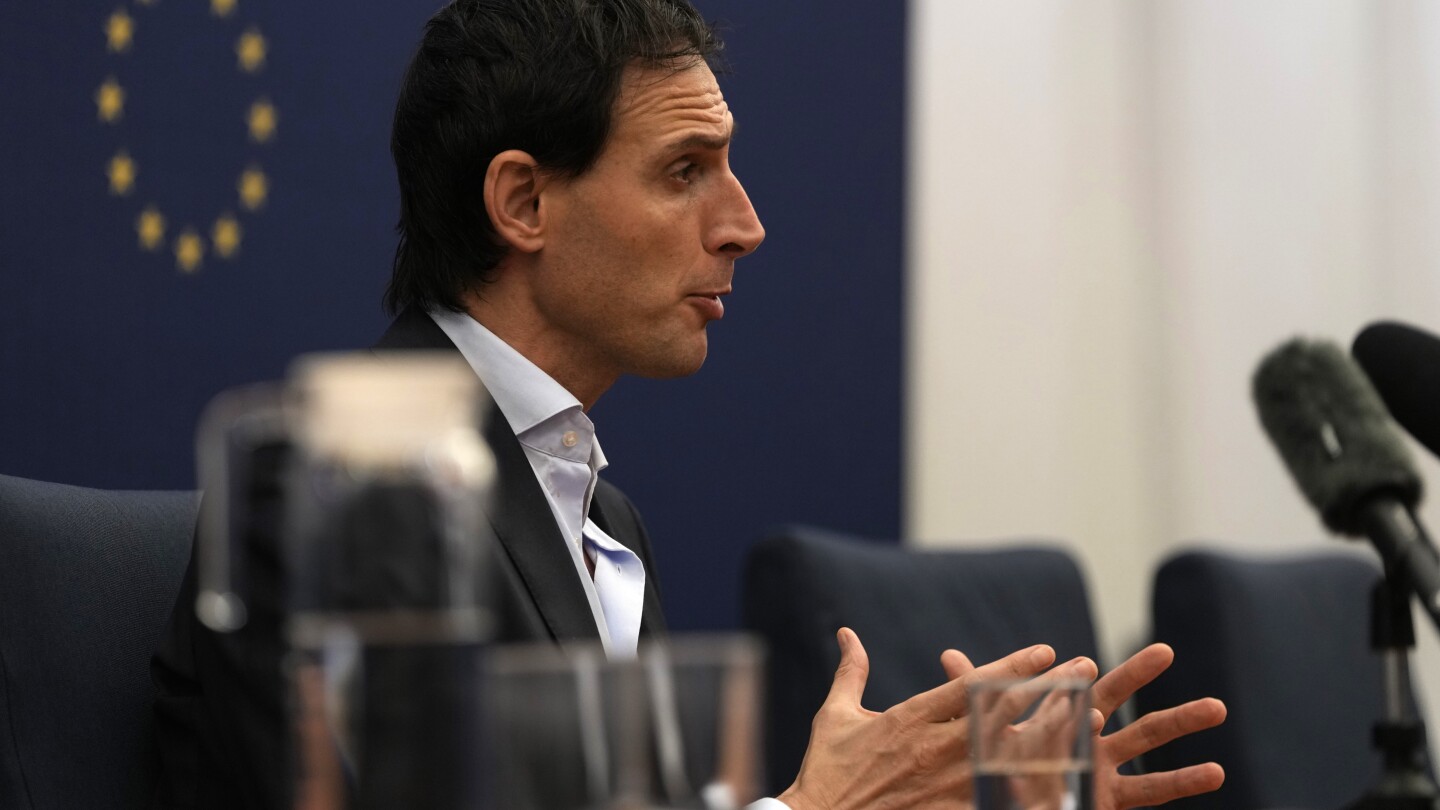BEIJING (AP) — The European Union’s top climate official said Thursday that China should stop building new coal-fired power plants and contribute to a global fund to help poor countries affected by climate change.
Wopke Hoekstra, the EU climate commissioner, raised both issues in what he called intensive and open conversations with his Chinese counterparts ahead of U.N. climate talks opening in Dubai at the end of this month.
Europe and the U.S. have been arguing that wealthier emerging economies such as China and Saudi Arabia should also give money to the fund. Hoekstra said that what is true for the European Union and North America should be true for any country in a position of economic and geopolitical strength.
“And that means driving down emissions and doing your fair share in covering the bill for those who cannot,” he said.
Given the magnitude of the problem, “every single country with the ability to pay and the ability to contribute should contribute,” he said.
A statement issued by China’s environment ministry did not address the climate fund for poor countries. It said that Ecology and Environment Minister Huang Runqiu told Hoekstra that he is looking forward to working with the EU for a successful U.N. climate meeting. Success would help build a fair, reasonable, cooperative and win-win system to address climate change, he said.
Hoekstra welcomed recent moves by the Chinese government to begin to address methane gas emissions, another greenhouse gas, though he said more needs to be done.
China released a methane gas action plan last week and a joint U.S.-China climate statement issued this week included an agreement to work collectively on the methane issue.
Separately, European Union negotiators reached a deal this week to reduce methane emissions from the energy industry across the 27-nation bloc. Coal mines and oil and gas fields are major sources of the emissions, which experts say are the second biggest cause of climate change after carbon dioxide.
China has been on a coal power plant construction binge, particularly following electricity shortages in some parts of the country’s south during a heatwave and drought in the summer of 2022.
“Even though at times of scarcity, you might need to scale up a bit, that is a far cry from building new coal capacity,” Hoekstra said. “That is of course something we would rather not see and about which we are critical.”
___
Follow AP’s climate and environment coverage at https://apnews.com/hub/climate-and-environment

